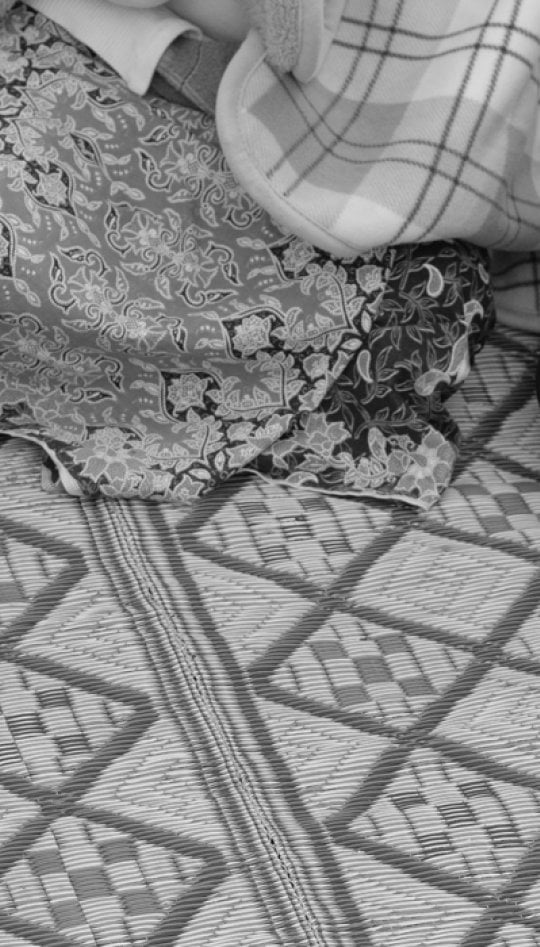
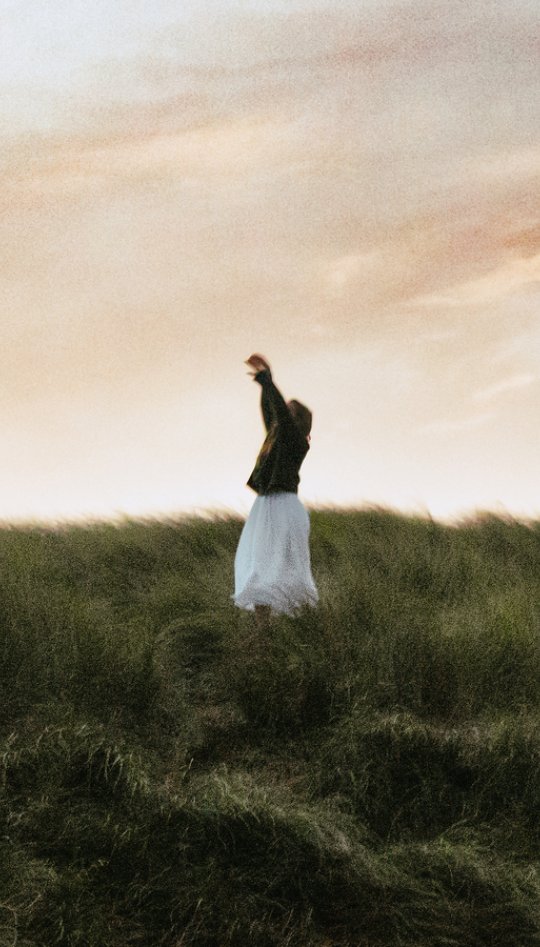

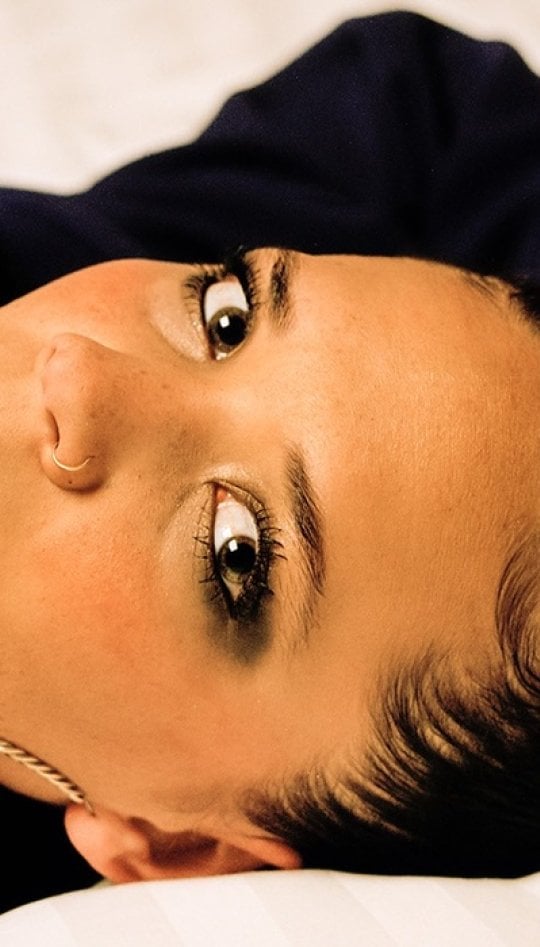
Photography BA(Hons)
Define a new era of contemporary photography.
Course overview
Ready to define a new era of contemporary photography? We’ll support you to craft a unique artistic voice as you experiment with techniques and processes, utilising our specialist studios, equipment and digital and analogue post-production spaces. As you develop a portfolio of original work, your technical know-how will be matched by a deep understanding of the critical and societal impact of your practice. With industry masterclasses, guest lectures and collaboration opportunities, you’ll gain the professional experiences to establish a sustainable career.
You will:
- Explore and develop your ideas through workshop-based teaching, with sessions in our Learning Hub, around the campus and beyond
- Have access to professional-standard photography facilities, including studios and darkrooms, and a range of digital and analogue cameras
- Experiment with and question the role photography plays in our society and culture
- Develop valuable skills in creative problem solving, critical thinking, negotiation and collaboration, alongside project management
- Engage in creative collaborations and work experience with industry professionals and organisations, building your professionalism and expertise in creative enterprise
- Shape your practice by working with tutors who are practising artists, photographers, curators, writers and thinkers
- Exhibit your work throughout the Photography degree, gaining feedback along the way and testing new ways to engage audiences
Lead images by Lizzie Blackie, Mary Coates, Serena Burgis and Alex Wilson.
Course details
On this Photography degree, you'll have the opportunity to gain a BA(Hons) degree over three years or the option to study Photography BA(Hons) with Integrated Foundation Year and/or a professional placement.
Across the duration of the course, you’ll build a self-directed practice that defines your unique way of representing the world. You’ll gain a wide range of technical skills utilising specialist equipment and processes from analogue to digital, studio to location, camera to print. Underpinning your practice will be a grounding in the history, theory, professional contexts and working practices of photography.
Year one will give you a firm foundation in photographic processes and techniques as well as the critical and cultural contexts of the discipline. From day one, you’ll be encouraged to take ownership of your learning journey and engage with opportunities to embed yourself in our supportive creative community.
Modules
Foundation
Through an investigation into both practical and theoretical aspects of Photography, you’ll gain a foundational understanding of ways of learning and developing new knowledge
Process
In this module, you’ll learn to confidently use specialist photographic facilities and equipment. From digital to analogue, studio to darkroom, you’ll explore some of the key photographic processes and techniques.
Agency
Through practical projects that encourage you to take agency over your learning journey, you’ll develop a conscious awareness of the intersection of photography with education, wellbeing, sustainability and social responsibility.
Progress
This module is all about consolidating your competency in the use of specialist photographic facilities and equipment. You’ll further progress your technical and craft skills in a range of different approaches while exploring professional working practices and industry contexts.
Approaches
In this module, you’ll be introduced to a broad range of practical and theoretical approaches to photography, as well as developing critical thinking skills through investigation, analysis and reflection.
Action
How can we use our creative practice to benefit our environment, community, stakeholders and society? In this module, you’ll be encouraged to take a critical view on the relationship between images and the larger contexts they operate within and are influenced by.
You’ll engage with a wide range of genres and possible applications of your work, exploring the critical and professional constraints of audience engagement and perception. You’ll also develop a deeper critical understanding of how photography operates in the world.
Modules
Commitment
Develop a practical understanding of contemporary professional practice with a commitment to creatively respond to set briefs within the context of commissioned work.
Engagement
Through close and careful observation of the material world around us and our relationship to it, you’ll produce creative expressions of ideas and emotions utilising approaches that are contextually appropriate.
Situation
You’ll further develop your critical understanding of how photography is situated and intersects with some of the most urgent global issues in our culture and society.
Collaboration
Collaborate on a creative output with external partners. To develop professional practice and an awareness of a variety of roles within the photographic and creative industries. Explore ethical, sustainable and inclusive working practices within the creative industries.
Experimentation
In this module, you’ll be encouraged to be curious, tolerate uncertainty, test ideas and play with possibilities. You’ll experiment with a range of techniques and processes and investigate how they relate to conceptual frameworks.
Context
You’ll develop your independent creative practice and build an awareness of the intended audience and situational contexts of your work.
You can choose to take an optional professional placement after your second year on a three-year programme, or after your third year if you’re studying for a degree with an Integrated Foundation Year.
You’ll be responsible for finding your own placement, with support from the Employability team.
Choosing this option will enhance your industry experience and skills while studying.
How you’ll study during your professional placement
You’ll spend time working in a professional context, as part of a business or organisation. This can be in one role, or up to three, and must be for a minimum of 24 weeks.
You’ll develop in-demand workplace skills, deepen your insight into industry and grow your network of contacts, all of which could help you get ahead in your career after graduation.
Throughout this year, you’ll develop a portfolio of work that includes critical self-reflection on what has been learned from the experience. You’ll be required to evidence your experiences, the skills you’ve learned and your professional growth.
In the final year, you’ll focus on your future aspirations and ambitions and how you can work towards achieving them. At the end of the year, you’ll have a complete body of work that represents your unique perspective as a creative practitioner along with the professional tools to launch yourself into the creative industries.
Modules
Investigation
You’ll carry out an in-depth critical investigation into a topic that’s related to your creative practice.
Development
Translating your research into practice, you’ll refine and experiment with appropriate techniques and processes as you test creative concepts in response to a chosen area of study.
Fulfilment
You’ll produce a sophisticated body of work that represents who you are as a creative practitioner, demonstrates your critical engagement with the medium and reflects appropriate industry expectations and contexts.
Ambition
You’ll develop and apply the practical skills needed to realise your ambitions, including creating a professional identity as an emerging creative industry pioneer.
Why study an Integrated Foundation Year route?
If you’re taking on a new subject that you haven’t studied in depth before, have been out of education for a while or have a non-standard educational background then an Integrated Foundation Year degree may be the right choice for you. It is a four-year degree with an Integrated Foundation Year to start, which allows you to explore the primary elements of your subject before progressing on to the remaining three years of the BA(Hons) degree.
What you'll study in your Foundation year
If you choose this pathway, you'll study five core modules in your Foundation year. These are all designed to help you explore the foundational elements of your subject. You'll gain relevant technical skills, learn to experiment and take risks, develop an understanding of professional practice, have opportunities to work across disciplines and collaborate with other students on live project briefs.
Modules
Explore
You'll begin your foundation year by working collaboratively with others to explore themes of the future. You'll take risks, experiment through play and be supported to break through barriers.
Technique
You'll take subject-specific workshops and develop essential technical and practical skills in your area of study. You'll also enhance your analytical and organisational abilities.
Apply
You'll work with your peer group to think beyond discipline by addressing a societal or global issue. You'll then showcase your work to your peers and deliver and accompanying evaluation of your process.
Industry
You'll enhance your creative and practical skills in your subject specialism by responding to typical industry briefs, underpinned by focused research and experiments. You'll also gain industry insights through guest lectures and workshops.
Launch
You'll develop your unique identity in your specialism through the production of a self-initiated body of work. Your final project will be the bridge to your next year, fully supported by evaluative reviews and critical analysis of the work you have created.
After the Foundation year, you progress into Year One of the full three-year degree, equipped with a deeper knowledge of your subject, a clear understanding of your strengths, and develop a practical and technical skillset and the confidence to excel in your chosen subject.
If you apply for and enrol onto a degree with an Integrated Foundation Year, you’ll have the option to switch onto a five-year version including a placement year. That means you’ll complete the first three years of your course before completing a placement in industry in your fourth year and returning to Falmouth for the fifth year of your programme.
We regularly review course and module content to ensure our students receive a high-quality and rewarding academic experience. As such, there may be changes made to the curriculum which are not immediately reflected in the content displayed on our website. Optional modules may be updated to maintain the best experience. Any students or applicants affected will be informed of approved changes directly.
From module information to course aims and assessment criteria, discover the full course details:
- Three year degree
- Four year degree with professional placement
- Four year degree with Integrated Foundation Year

Photo: Hydar Dewachi
Photography alumna selected for New Contemporaries 2025
BA(Hons) Photography alumna Viviana Almas has been selected for New Contemporaries, a prestigious showcase of the most exciting emerging artists living and working in the UK. As one of only 26 selected artists in 2025, Viviana will receive one-to-one mentorship from an arts professional and will take part in two exhibitions at South London Gallery and MIMA Middlesbrough in 2026.
Read the full story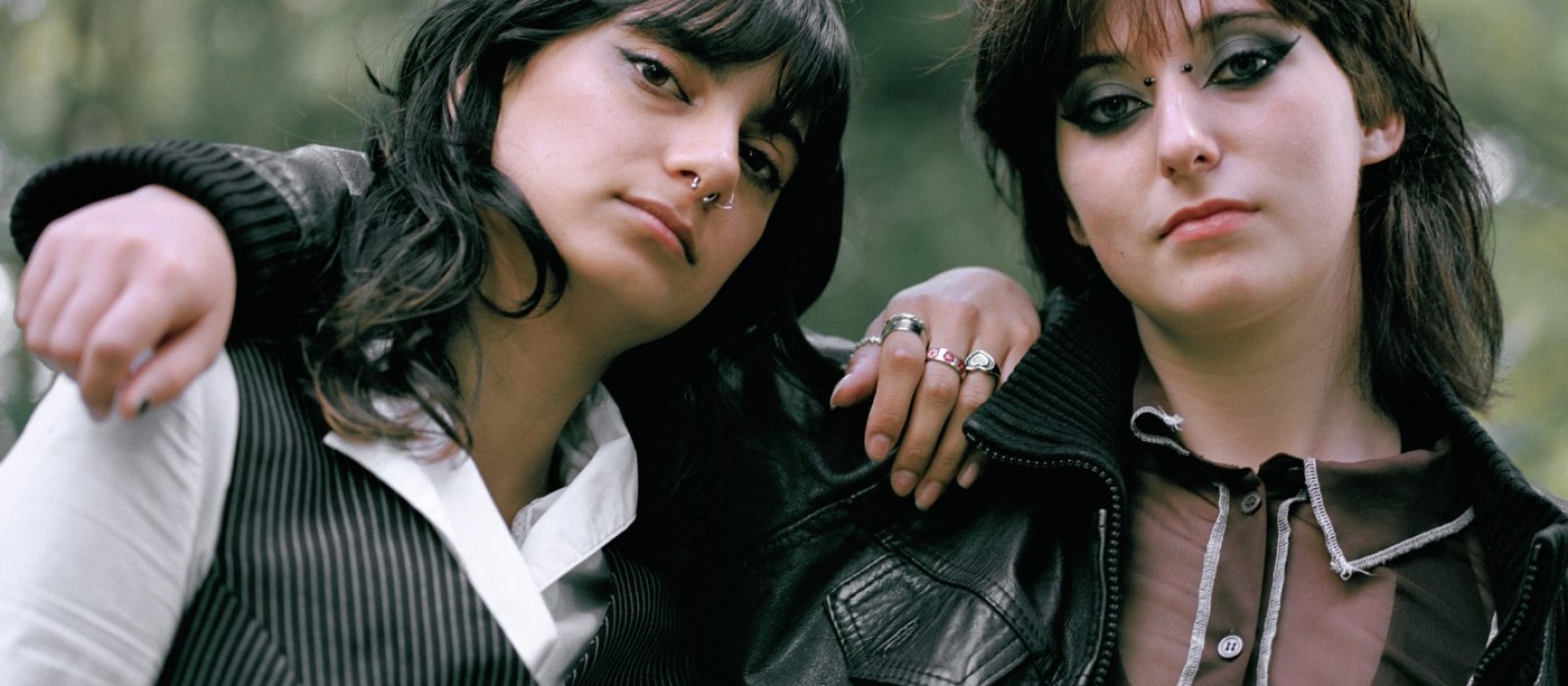
Photo credit: 'One Touch' by Niamh Shergold
How you’ll learn & be assessed
On this Photography course, you'll build valuable technical, critical and professional skills through practical workshops, seminars, lectures, tutorials, critiques, field trips and masterclasses with industry professionals.
At Falmouth, we use a 'digitally enhanced learning & teaching' approach. Your experience will always be predominantly in-person, including seminars, tutorials and studio teaching, with some, more targeted elements, being online either live (synchronous) or pre-recorded (asynchronous). You can read more here.
100% of your assessment will be coursework, with no formal examinations.
Assessment methods
- Foundation year assessments are 100% coursework based
- Portfolios
- Projects
- Exhibitions
- Journals
- Presentations
- Essays
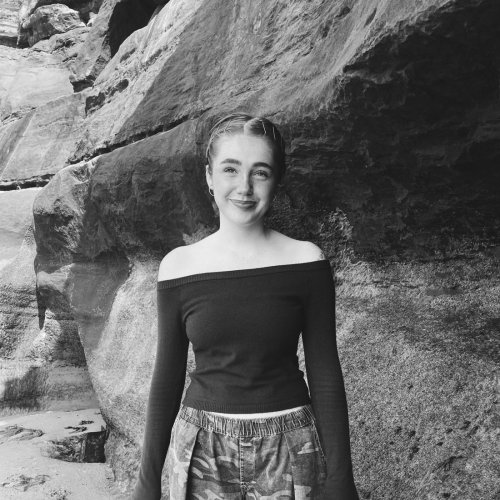
Photography graduate wins Portrait of Britain for second year running
For the second year running, BA(Hons) Photography graduate Niamh Shergold has been named a winner of the Portrait of Britain, cementing her place as one of the UK's most exciting emerging photographers.
Read more about Niamh's storyStudent Gallery
How Birds Fly by student Edward Brilliant
"This ongoing project was initially created in my second year, in response to the Audience and Context module. The work looks at themes surrounding the ethics of photography and questions who the predominant storyteller is within the photographs. In the series, the sitters become the predominant storytellers, leading the project by showing aspects of their daily lives."
Flat Time by student Vivian Almas
"I started to work on the project during the summer and decided to continue working on it in my third year Developmental Portfolio module. The main inspiration for the project was drawn by the lifestyle I was having which was set in one of the busiest locations in the world - New York. In response to the fast-paced lifestyles I was observing around me as well as major political events that were and are happening in the world, Flat Time has started coming to this world. Since then, the project has evolved in a way of responding more to the ongoing political events happening around the globe whilst my presence is now situated in a secluded area where tranquility outweighs the reality."
Magic Isle - Final Portfolio by 2023 graduate Maya Brasington
"Part of an ongoing enquiry into self-identity, Magic Isle explores how descendants of immigrants often construct a magical, and perhaps unreal, imagination of the distant 'homeland'. By blurring the lines between myth and reality, this work brings attention to the role of the image in identity formation and memory.
In this episode of Ones To Watch, Photography BA(Hons) graduate James Bannister tells us about his creative process and his career highlights to date.
Graduate spotlight
Photography BA(Hons) graduate James Bannister works with creatives worldwide as a freelance photographer and director.
We talked to him about his approach to visual storytelling, the importance of finding your unique voice and the highlights of his career since graduating.
"After I graduated university, I assisted for a couple of years and I took some time to learn the craft of photography. But I always knew that I wanted to go out on my own and be the photographer...
Connect with us on Instagram
See the latest student and graduate work pushing the boundaries of contemporary photography.
Follow us on Instagram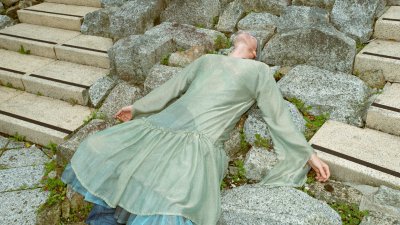
Facilities
- Fully equipped professional-standard studios with industry standard flash and continuous light, infinity coves and a full range of backdrops
- State-of-the-art digital post-production suites with complete Adobe Creative Cloud Package and Capture One
- Fully equipped black and white darkrooms for printing from any format to almost any size
- Machine film processing for B&W, Colour C41 and E6 and hand processing facilities
- Colour darkrooms for RA4 printing from any format up to 5x4
- Alternative and sustainable photographic processes
- Photography rental store housing a vast range of analogue and digital camera equipment for stills and moving image plus lighting, specialist equipment and location shooting kits
- Professional standard print lab for producing high quality prints on industry standard equipment and on various media up to B0
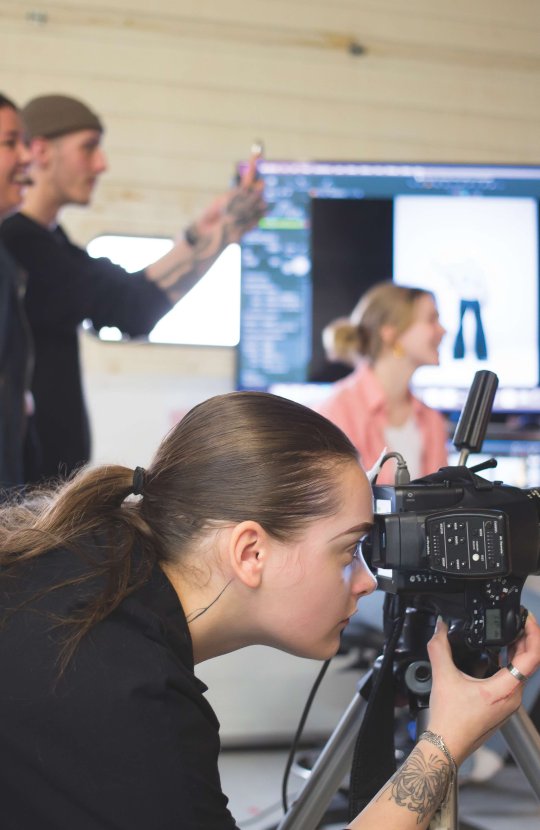
Virtual tour
Discover where you’ll spend your time as a student with our 360° tour, showcasing our facilities, accommodation, town and scenery.
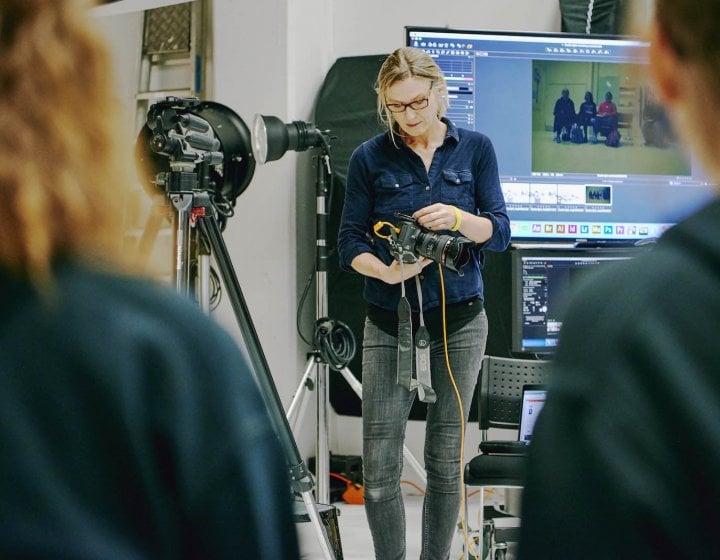
Photography Facilities
Housing dark rooms, post-production suites, full professional studios and gallery, our Institute of ...
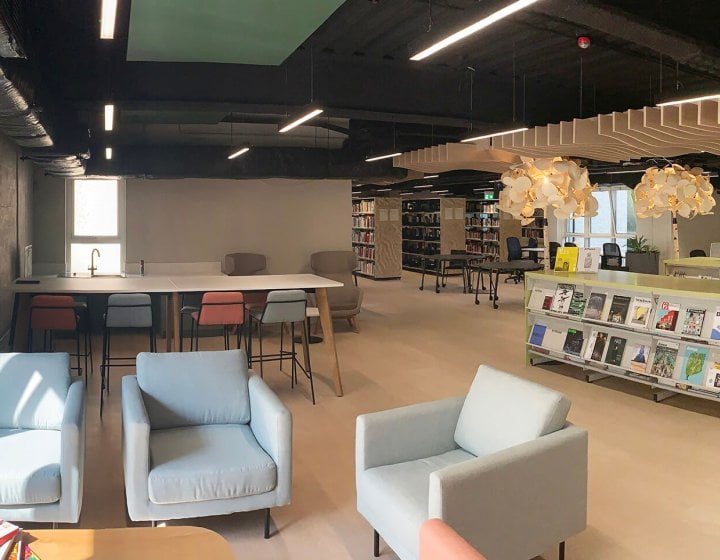
Library Facilities
Offering extensive collections, our two libraries provide a wealth of digital resources, magazines, ...

Sports Centre
Our Sports Centre, on Penryn Campus, includes a spacious gym with up to 90 of the latest, new statio...
Staff
You’ll learn from a team of practicing professionals, offering experience in editorial, documentary, fine art photography, advertising, publishing, writing and curating. You’ll also connect with our network of visiting professionals who offer extra teaching, portfolio reviews and placement opportunities.
Some members of staff only teach on specific modules, and your course might not feature every staff member who teaches on the course.
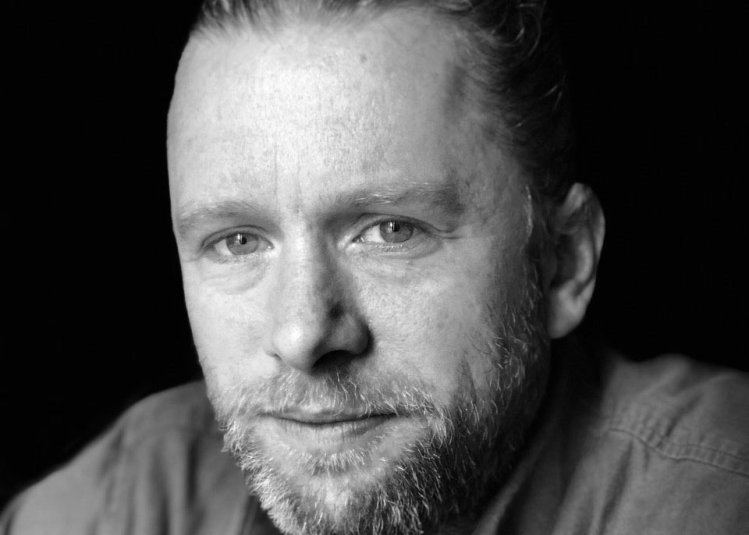
Steven Barritt
Course Leader, BA Photography
Steven Barritt is an artist, photographer and lecturer based in Cornwall. His photographic practice ...
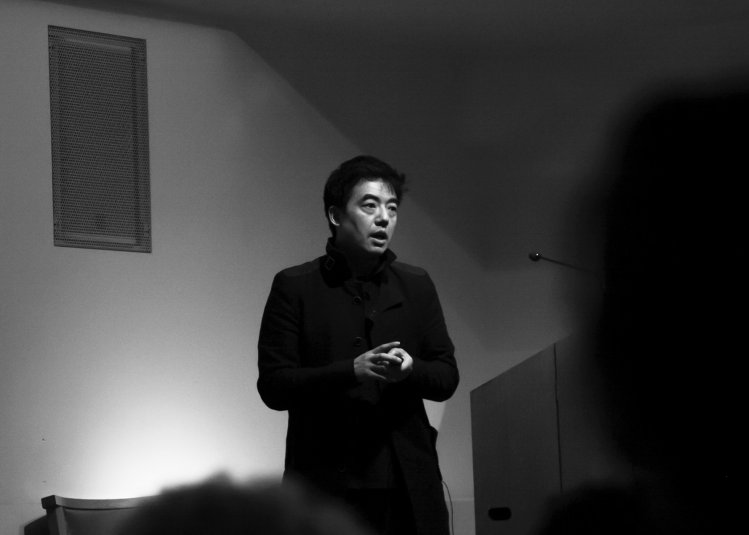
Dinu Li
Senior Lecturer, BA Photography
Dinu Li is an interdisciplinary artist working with the moving image, photography, installation and ...
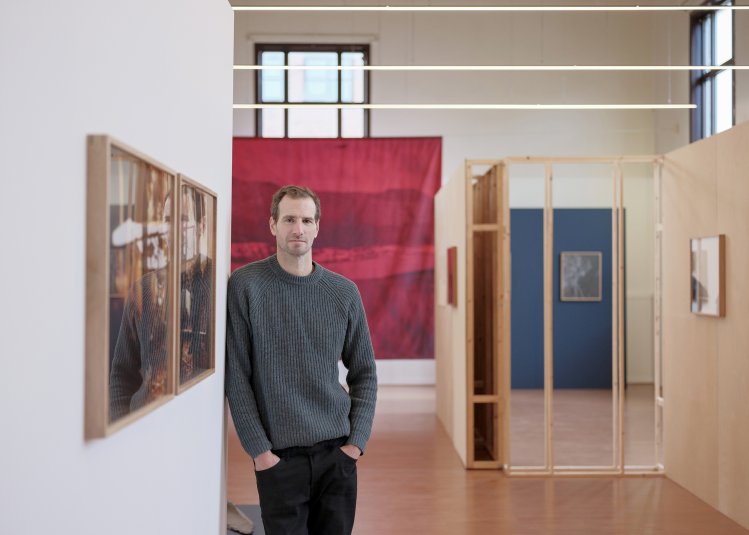
Oli Raymond-Barker
Lecturer
Oliver Raymond Barker is an artist and educator based in Cornwall. He works with the mechanics and a...
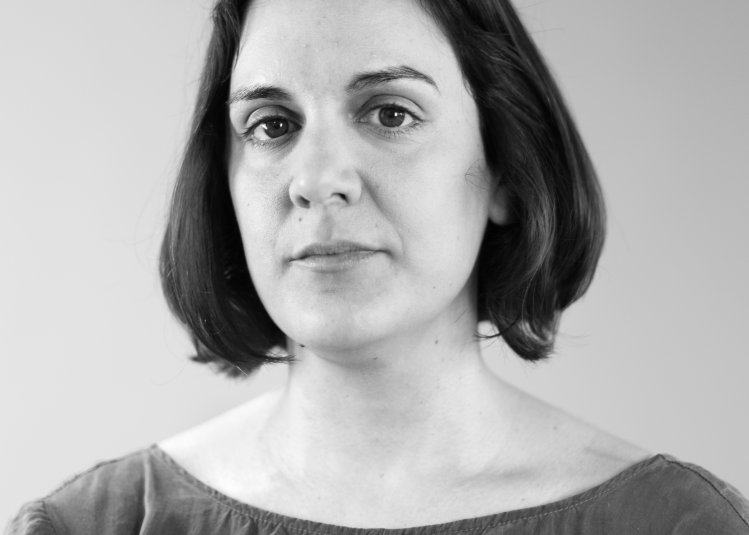
Dr Catarina Fontoura
Course Leader, Photography BA(Hons) (Online)
Catarina Fontoura is an artist, educator and writer. She has submitted her PhD thesis in History of ...
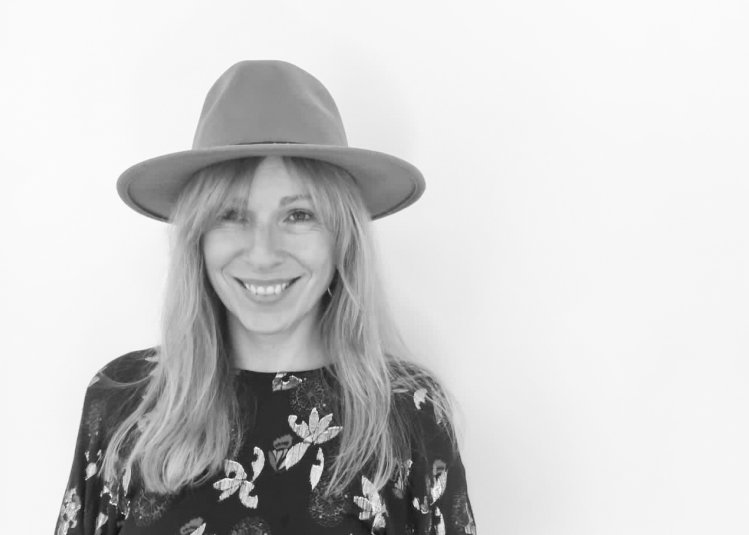
Kate Lowe
Lecturer Photography Integrated Foundation Year Degree
I am a photography educator and joined the IFY team in June 2023. Back in 2011, I began my career as...
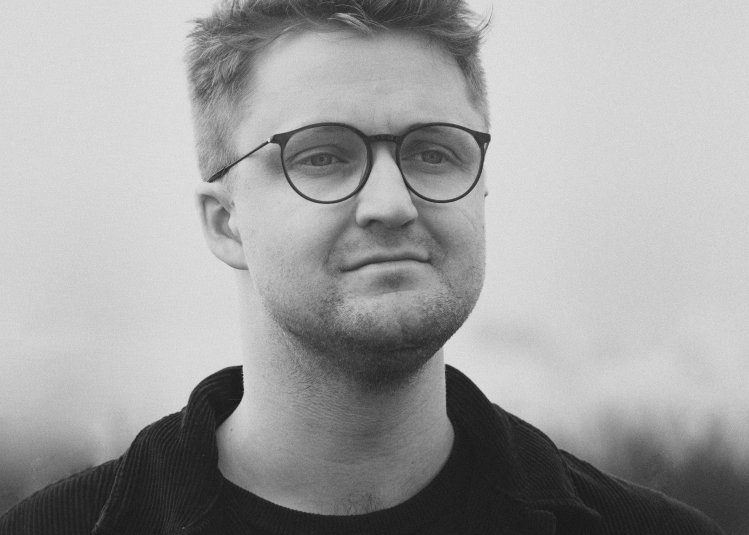
Tom Skinner
Lecturer
Tom works with photography and film through image-making, curation, writing and teaching. He graduat...
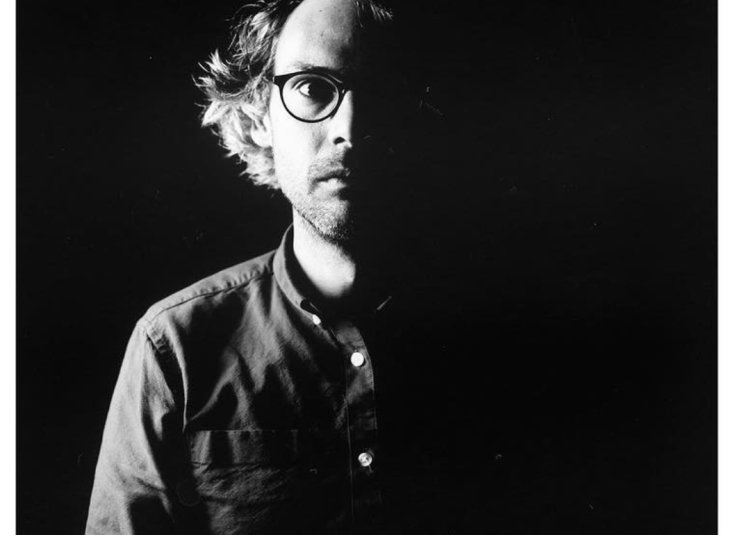
Oliver Udy
Head of Photography
Oliver Udy is a photographer, publisher and general facilitator of things.Udy joined Falmouth Univer...
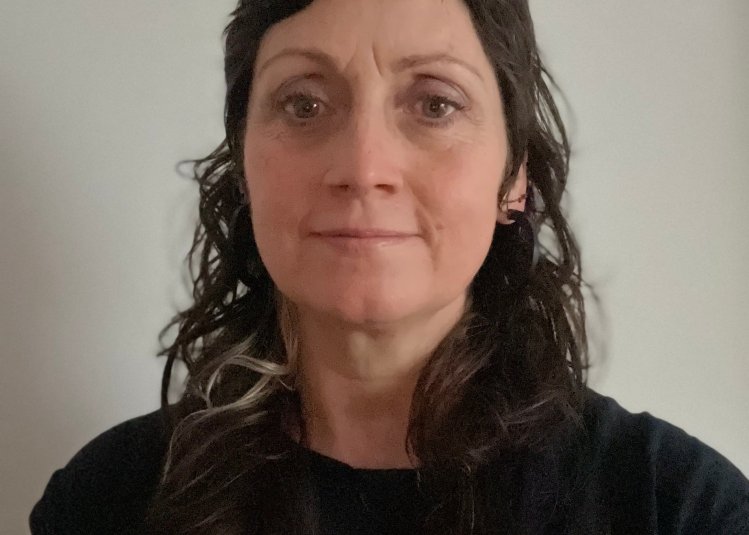
Karen Brett
Senior Lecturer
Karen Brett is an artist working with photography, moving image & sound who graduated with a BA ...
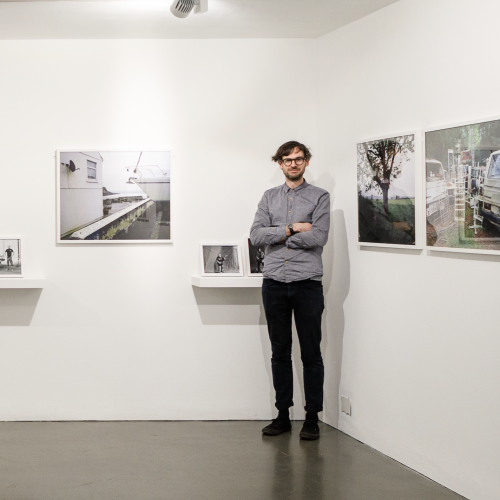
Got a question about this course?
If you want to know more about the course structure, our application requirements or what our graduates have gone on to achieve, our friendly course team is here to help.
Chat to OliStories from our community
Explore student projects, graduate successes, staff news and industry insights from the Institute of Photography
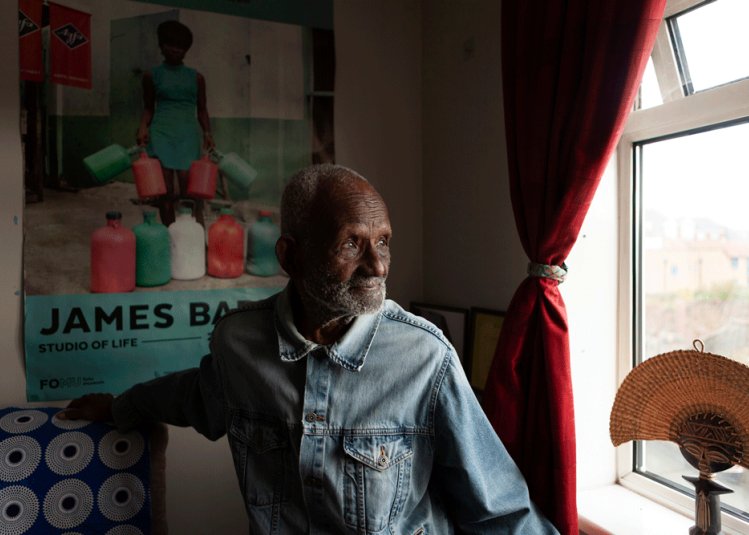
Photography lecturer shoots editorial commission for The New York Times
11 February 2026
BA(Hons) Photography (Online) lecturer, Celine Marchbank, has recently captured the 96-year-old Ghan...
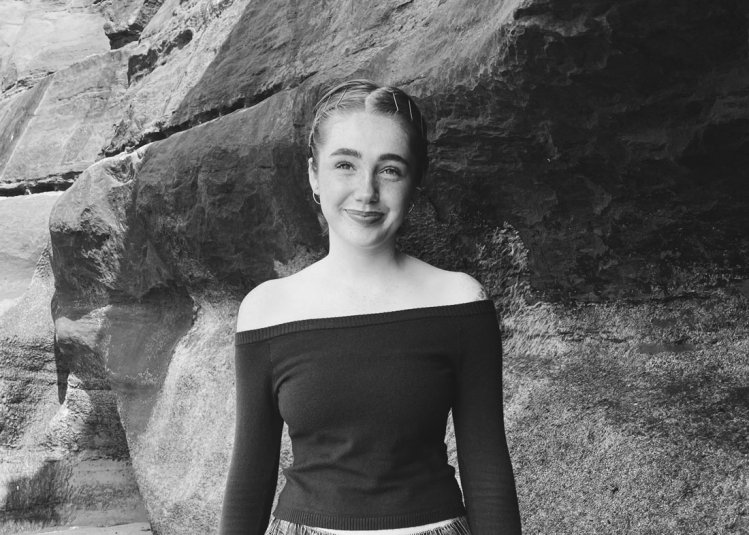
Falmouth graduate wins Portrait of Britain for second year running
10 February 2026
Niamh Shergold discusses the story behind her winning image.
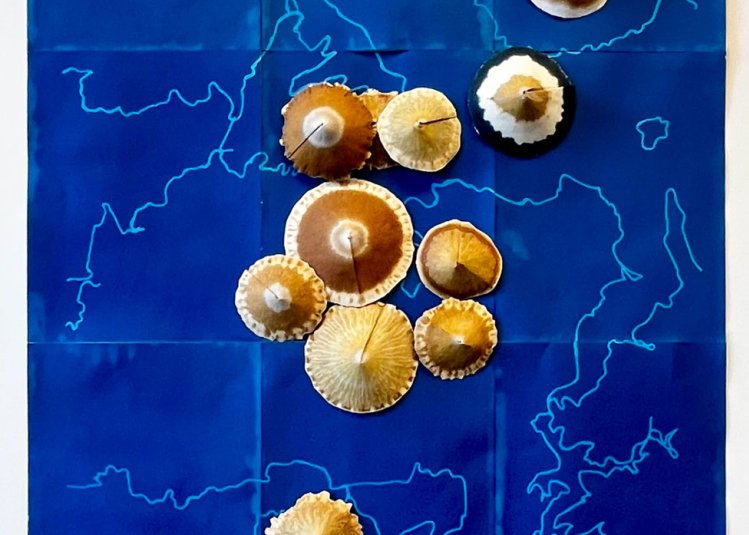
'Volcanic Field Map' by Linda Jarrett.
How an MA Photography project sparked change in emergency planning
05 February 2026
Linda Jarrett discusses her final major project on Auckland's volcanic risk.
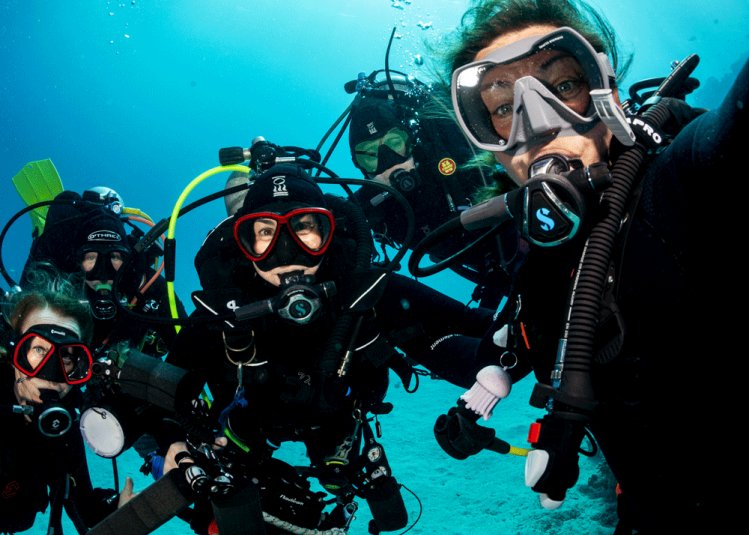
Photography students capture fascinating marine life in Egypt on annual diving trip
03 February 2026
BA(Hons) Marine & Natural History Photography students recently got the chance to dive into the Red ...

Credit: William Bunce
Still life photographer on fusing creativity with technical excellence
13 January 2026
Since graduating from Falmouth’s BA(Hons) Photography degree in 2010, William Bunce has forged a s...
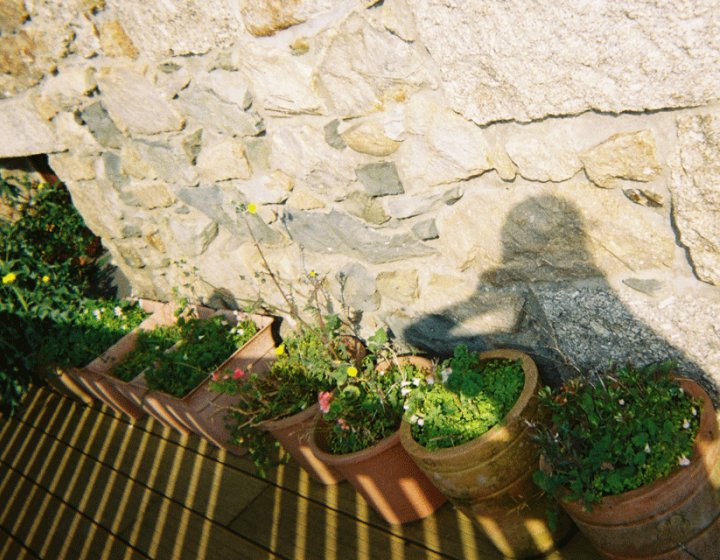
Falmouth lecturers collaborate with West Cornwall Women’s Aid to facilitate exhibition in Penzance
24 November 2025
Unsettled is an upcoming exhibition that showcases the strength and resilience of women rebuilding t...
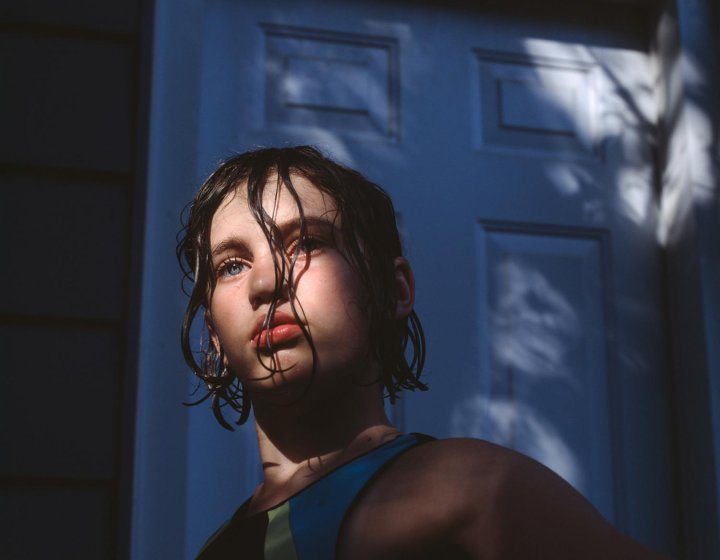
From the series 'All Quiet on the Home Front' by Colin Pantall
Falmouth Photography Lecturer explores fatherhood in Italian exhibition
20 October 2025
Colin Pantall's exhibition, 'All Quiet on the Home Front' explores fatherhood, landscape and identit...
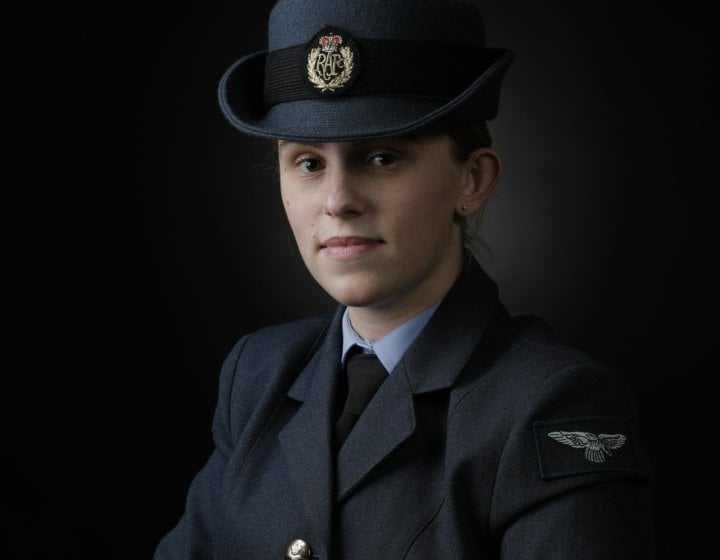
RAF Photographer on balancing military service with a master’s degree
03 October 2025
Read how Leah Jones combined military deployment with a master's degree.
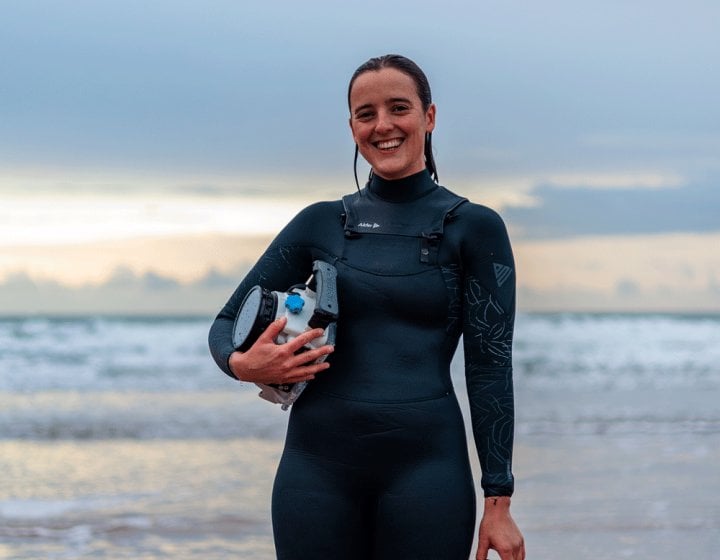
Falmouth alumna becomes the first female editor of long-standing surf magazine
23 September 2025
After feeling creatively influenced by Falmouth’s deep connection with the sea, nature and its com...
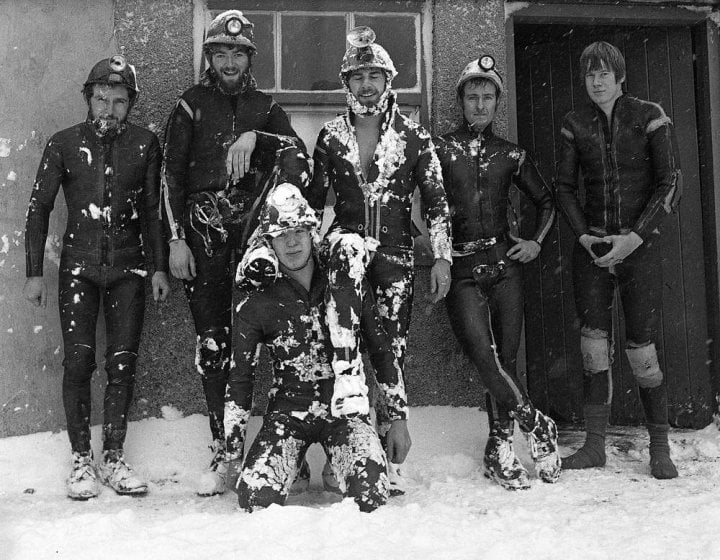
Eldon Pothole Club at Peakshill Farm, 1971
Falmouth student documents the eccentric world of Derbyshire cavers
31 July 2025
Specialising in portrait photography, Jon has turned his lens on the Eldon Pothole Club.
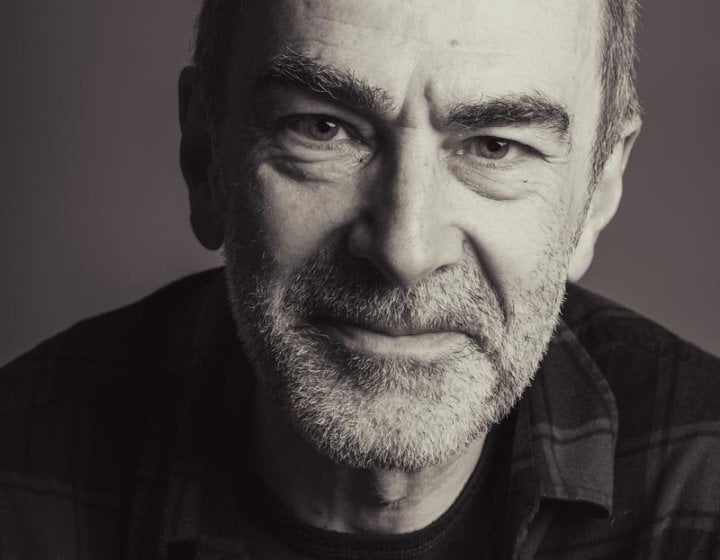
Image by Seamus Flanagan
How postgraduate study gave one mature student a new focus
22 July 2025
Will shares how he rediscovered his creative voice through returning to higher education later in li...
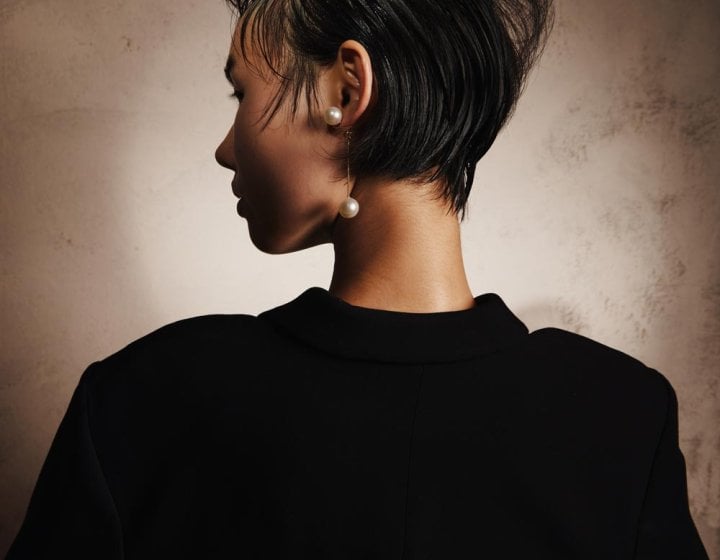
Work by Cody Murray
Photography student secures multiple commissions in the haircare industry
26 June 2025
Cody Murray has recently worked with haircare brand WAHL and bagged an editorial feature in Tribu-te...
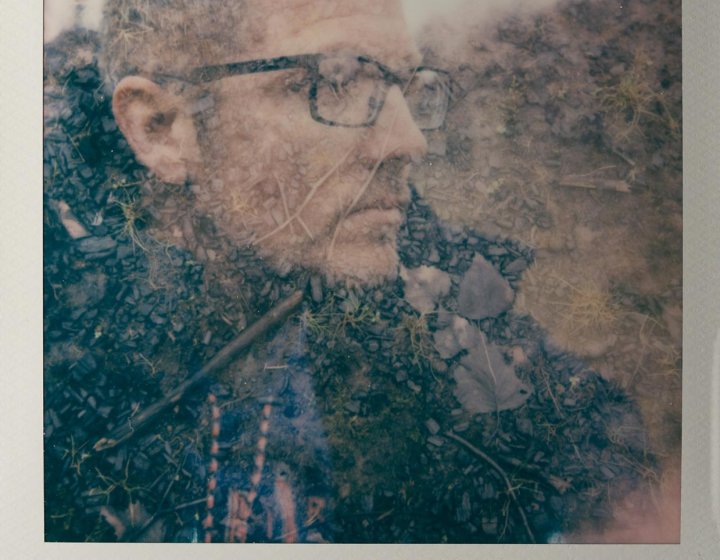
Work by Dean Cook
Exploring neurodiversity through Polaroid photography
25 June 2025
Read how one Photography student used his course to explore a deeply personal project.
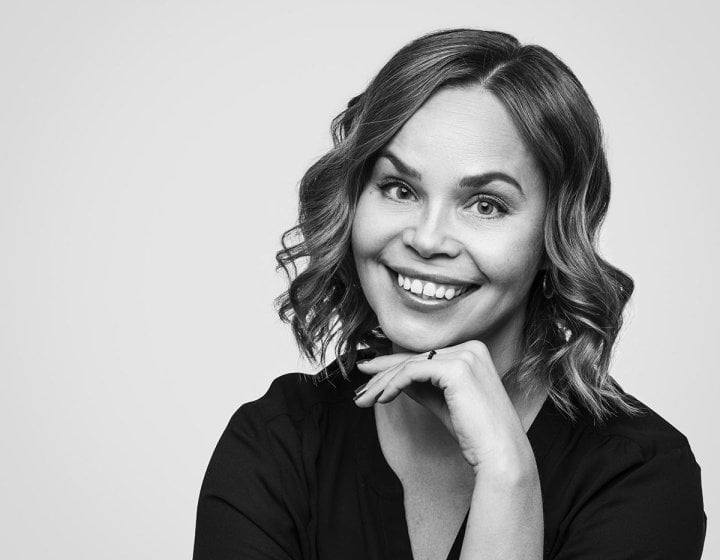
Graduate shortlisted for Photo London x Hahnemühle Student Award
13 May 2025
Photography MA (Online) graduate, Nina Kostamo Deschamps is already making her mark in the field.
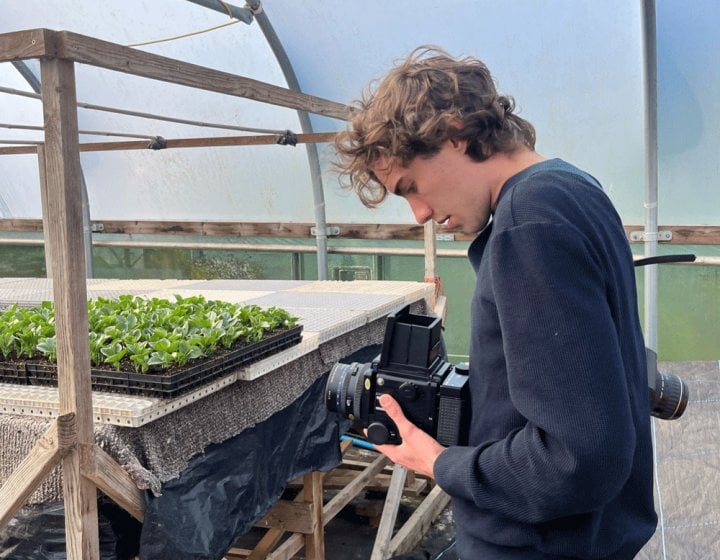
Documenting the sustainability of farming: Photography BA student Joe Day
06 May 2025
After visiting Yeo Valley Organic, The Milk Stand at Kingston Seymour Farm, and Dowstall Farm, secon...
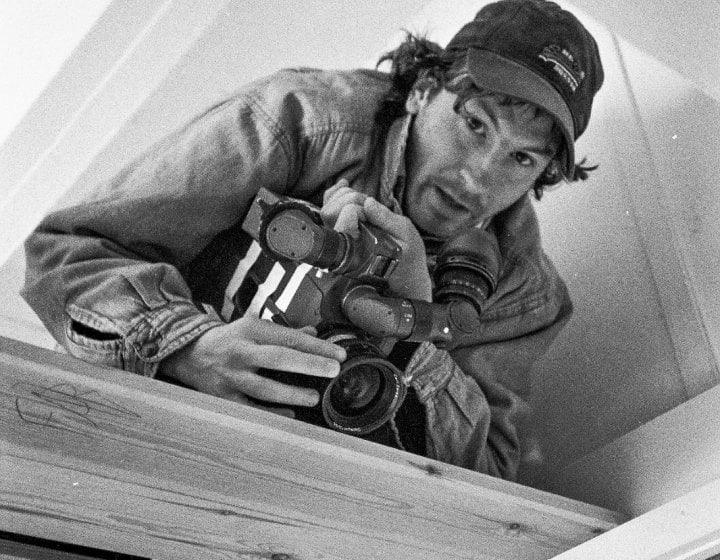
The technician and photography graduate taking music videography by storm
23 April 2025
Since graduating from Photography BA(Hons) in 2016, Charlie Fairbairn has forged an eclectic caree...
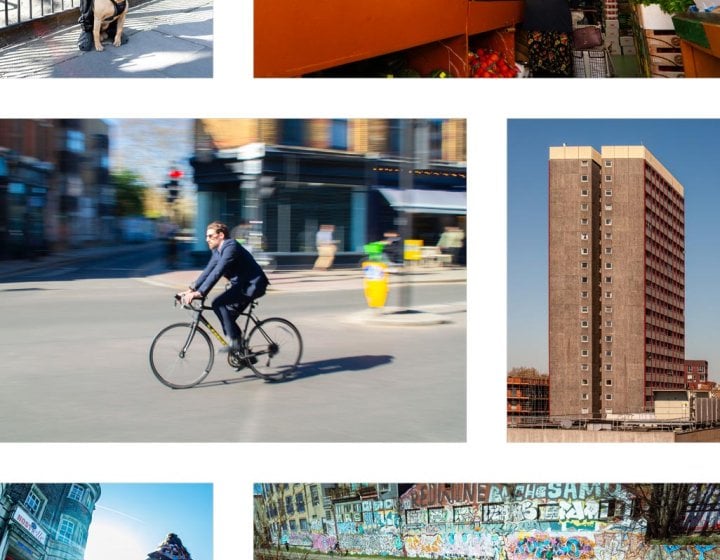
Students photograph the hidden heart of Bethnal Green in London exhibition
23 April 2025
Documentary & Editorial students had just 24 hours to document Bethnal Green's people and culture.
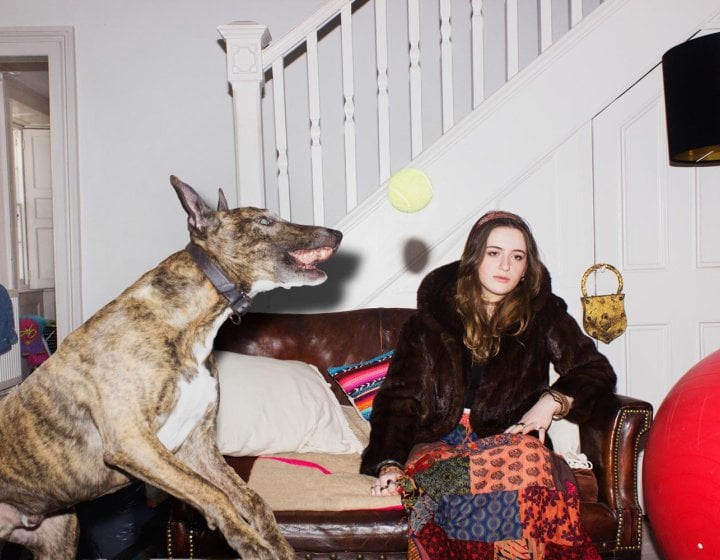
Image: Jennifer Forward-Hayter
Course Leader and graduate curate photography symposium at Photo|Frome
14 April 2025
Jesse Alexander, Course Leader of Photography MA (Online), and Phil Hill, a graduate of the same pro...
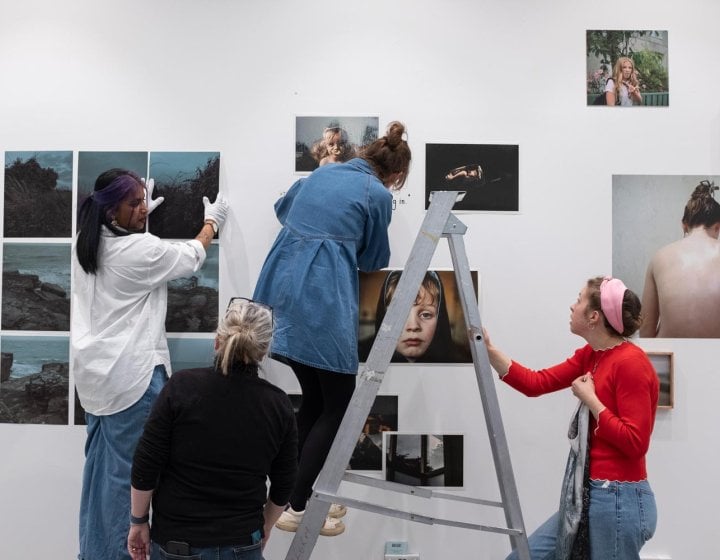
Image by Sylwia Ciszewska-Peciak
Photography graduate Dawn Rodgers exhibits at FORMAT Festival
11 April 2025
Dawn Rodgers has recently showcased her work as part of the renowned East Meets West Masterclass Pro...
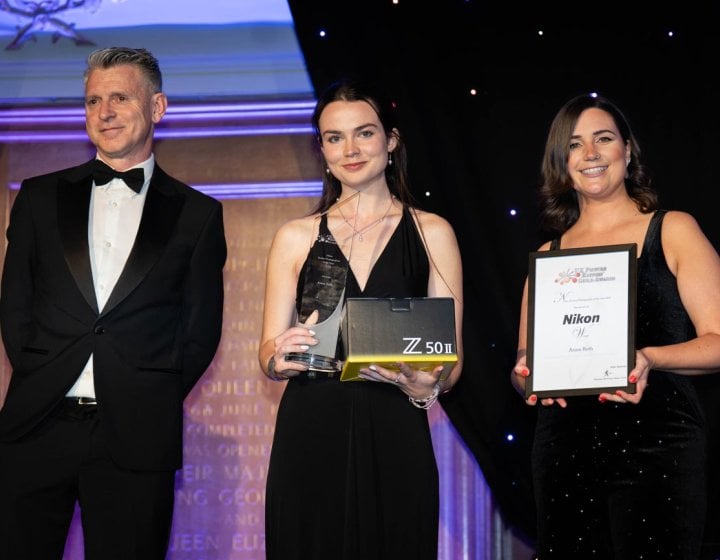
Falmouth Student Anna Roth Wins Nikon Student Photographer of the Year
08 April 2025
Third-year Press & Editorial Photography student Anna Roth has been named Nikon Student Photographer...
Careers
Our Photography graduates have worked as:
- Internationally exhibiting artists
- In-house photographers for global brands
- Freelance fashion photographers for campaigns including Calvin Klein, Gucci and Stella McCartney
- Award-winning filmmakers
- Producers and creatives for social media
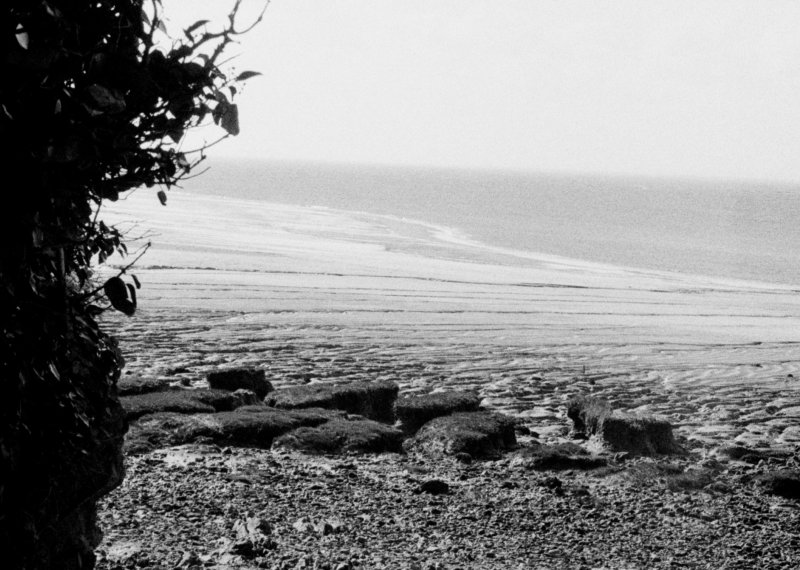
A professional Photography degree gives you the opportunity to develop your unique creative practice.
How to apply
Ready to apply for 2026?
You can apply for our undergraduate degrees via UCAS. You'll need our university UCAS code (F33) as well as your course code (which you'll find on your course page) for your application.
Applying as an international student?
There are a number of different ways to apply to study at Falmouth as an international student. Find out how you can become part of our creative community.
| Course route | UCAS code |
|---|---|
| Photography BA(Hons) three year degree | W640 |
| Photography BA(Hons) with Integrated Foundation Year | FY21 |
| Photography BA(Hons) with professional placement | PY38 |

Application advice & interview information
Go to ToolkitFor starting your studies in 2026
UK applications: 14 January 2026 (for equal consideration)
Applications after the 14 January will be considered on a first-come, first-served as long as there are places available. Apply for this course now.
For starting your studies in 2027
UK applications: 13 January 2027 (for equal consideration)
International fee payers
International fee payers can apply throughout the year. But we recommend applying as early as possible, to make time for visa and travel arrangements.
We consider all applications on their own individual merit and potential.
Our diverse community is creative, innovative and entrepreneurial. We recognise that these qualities aren’t always shown in academic grades alone. That’s why, while many of our applicants achieve high academic grades, we also welcome those who can demonstrate their potential through an exceptional portfolio or performance.
We welcome applications from all subject backgrounds, whether you’ve specialised in STEM, the arts or humanities. Find out more about our Entry Requirements here.
Course routes & entry requirements
BA/BSc(Hons) three year degree: minimum 64 UCAS Tariff points
BA/BSc(Hons) four year degree with professional placement: minimum 64 UCAS Tariff points
BA/BSc(Hons) four year degree with Integrated Foundation Year: minimum 32 UCAS Tariff points
At Falmouth, we'll consider the equivalency of your specific qualifications against our entry requirements and support you through your application journey.
View our International Entry Requirements
Language requirements
For applicants whose first language is English we require you to have or be working towards GCSE English Language Grade 4 (C), or equivalent.
If English is not your first language you will need to meet the same standard which is equivalent to the IELTS Academic 6.0 overall score, with at least 5.5 in Reading, Writing, Speaking and Listening. We accept a range of in country equivalencies and approved tests.
If you need a student visa to study in the UK, you may need to take a recognised language test. You can read our English Language Requirements for more information.
Fees, costs & funding
Tuition fees
| Annual tuition fee | Student |
|---|---|
| £9,790 per year | Full-time UK |
| £19,950 per year | Full-time EU/international |
| £1,955 per professional placement year | Full-time UK and EU/international |
| £9,790 per Integrated Foundation Year | Full-time UK |
| £19,950 per Integrated Foundation Year | Full-time EU/international |
| Annual tuition fee | Student |
|---|---|
| £9,535 per year | Full-time UK |
| £17,950 per year | Full-time EU/international |
| £1,905 per professional placement year | Full-time UK and EU/international |
| £9,535 per Integrated Foundation Year | Full-time UK |
| £17,950 per Integrated Foundation Year | Full-time EU/international |
Tuition fees for September 2027 will be confirmed in summer 2026.
Tuition fees are set annually and are subject to review each year. The University may therefore raise tuition fees in the second or subsequent years of a course, in line with inflation and/or the maximum permitted by law or Government policy. Students will be notified of any changes as soon as possible.
The figures above don't include accommodation and living costs
Typical course costs
As a medium, photography is constantly developing so the following figures are intended as a rough guide of anticipated expenditure on the course.
- You will need to have your own laptop, PC or MAC or tablet, on which you can access online learning materials and can process high resolution digital images. This should be capable of running Photoshop as a minimum.
- Access to a reliable broadband connection
- Ideally, a basic digital camera and a standard lens (either DSLR or a Mirrorless System) capable of shooting in RAW and Moving Image and it should have a fully manual mode (approx. £200 - £900). The Institute of Photography supports Canon, Sony and Nikon so these may be the best choices for compatibility with our lenses and accessories. Remember that you will be able to borrow all the equipment in the IoP stores for free
- You may prefer to work with analogue film. 35mm SLR cameras by Canon or Nikon will be most compatible with our loan equipment
- User manuals for your cameras
- SD card(s), minimum 16Gb
- USB card reader for the above
- USB hard drive, minimum 250Gb recommended. Approx. overall cost £50 – £100
- £50-£100 - Optional items such as lens hoods, UV/Skylight filters, shutter release controls, sturdy tripod
- £100-£400 - Per year on consumables (film, printing, portfolio materials, A4 binders, notepads and other consumables)
- £200 - Study trips integral to course
Optional study trips
- £400-£1,500 - various study trips, including international, offered throughout the year
If you need to bring equipment or materials with you, these will be outlined in your Welcome Letter.
Important Equipment
All students should aim to have the following equipment for the start of term:
Laptop
- You will need to have your own laptop, PC or MAC or tablet, on which you can access online learning materials and can process high resolution digital images. This should be capable of running Photoshop as a minimum, the specifications can be found here https://helpx.adobe.com/uk/photoshop/system-requirements.html.
Please note you will have access to computers on campus as well but a laptop you can work from home on will make life much easier.
Camera
- Ideally, a basic digital camera and a standard lens (either DSLR or a Mirrorless System) capable of shooting in RAW and shooting Moving Image with full manual mode (Approx. £200 - £900). The IOP supports Canon, Sony and Nikon so these may be the best choices for compatibility with our lenses and accessories. Remember that you will be able to borrow for free all the equipment in the IoP stores including cameras.
- If you have an analogue film 35mm SLR camera (Canon & Nikon cameras will be most compatible with our equipment), bring it with you. If interested you can purchase second-hand stock from online sites e.g., MBP, FFords, Mifsuds.com, London Camera Exchange etc. (Approx. £50 to £100).
Accessories
- SD card(s), minimum 16Gb.
- USB hard drive, minimum 250Gb recommended.
Approx. overall cost £50 – £100
Consumable materials
Throughout all three years students need to budget for material costs for film, printing, portfolio materials and other consumables. The actual costs will depend on the amount of work you do and on the decisions you make in terms of processes, presentation, print size and so on. A budget of £100-£400 per year should cover basic costs.
Study Visits
There will be a number of educational trips during the course which include study visits, individual research trips and placements. These experiences are an integral part of your studies, and you are expected to attend. We estimate this to be about £100 in total per year although this may vary, depending on the visits or placements arranged.
Additional costs
Optional trips
We run a number of optional, national and international trips every year; with costs ranging from £400 - £1,500.
Additional typical course costs for Integrated Foundation Year pathway
- £250 for materials
- A laptop/desktop computer
- Adobe Creative Suite
To engage in the digital learning activity, although you will be able to access IT suites on campus, you will benefit from a laptop to access the platforms and tools we use. Depending on your subject, you may need a specific type of computer. If you're unsure about what you might need, please contact our course advisors.
Course equipment and costs
You will be recording your creative progress and writing about your work throughout the Integrated Foundation Year and so a laptop computer and a smartphone are highly recommended.
Typical course material costs:
- £250 - Recurring annual costs may include: art/creative materials and costs towards your end of year show exhibition and can vary depending on material choices and specialism.
Study trips
There are several field trips, and you will need to allow for some costs for student contributions towards coach hire and exhibition entry. Total annual cost of day trips are approximately £60.
If you want to attend the planned week-long residential trip to London in the Spring of 2026, then you will need to plan for a £100 deposit payment shortly after arriving on the course, to secure a place, and to budget for a total trip cost of approx. £400 - to be paid in instalments.
Funding
For information about funding available, please visit our student funding pages.
Ask a student
What better way to find out about life at Falmouth University than by asking our current students?
From course details and academic support, to the social scene and settling in, our students are ready and available to answer any questions you might have. Simply set up your account, send them a question and they'll get back to you within 24 hours.
Similar courses

Photography BA(Hons) (Online)
With a distinct focus on global digital communication, this online photography degree will equip you...
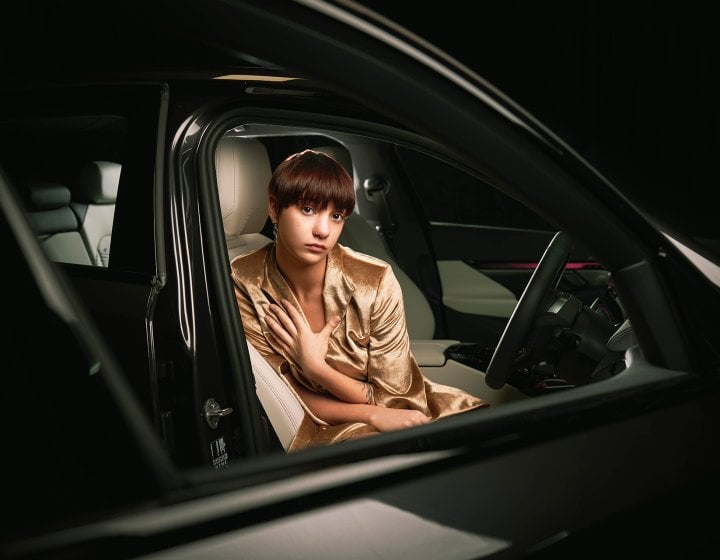
Work by Hannah Mittelstaedt
Commercial Photography BA(Hons)
From creating photographs and films for high-end advertising and marketing campaigns to producing vi...
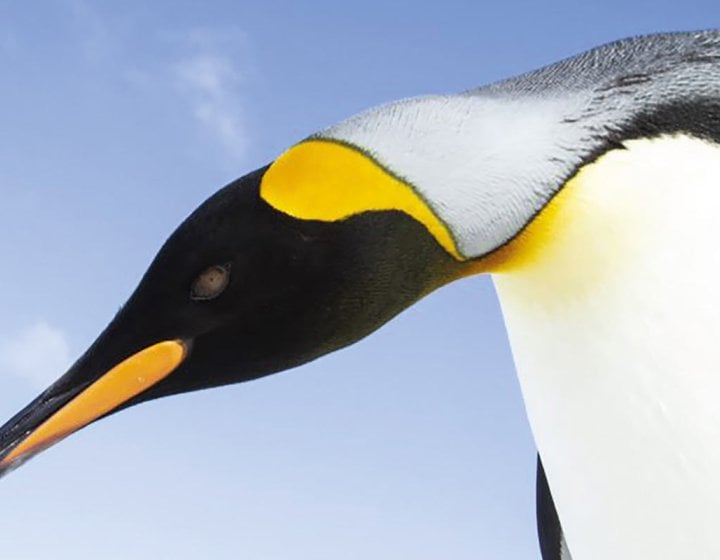
Marine & Natural History Photography BA(Hons)
Harness your passion for photography and filmmaking to inspire audiences about nature and the enviro...
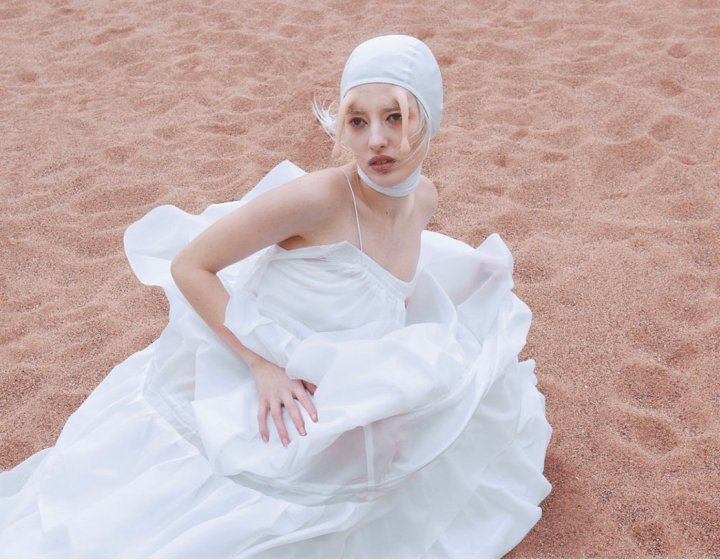
Fashion Photography BA(Hons)
Develop your unique artistic voice and springboard into the industry as an innovative fashion photog...
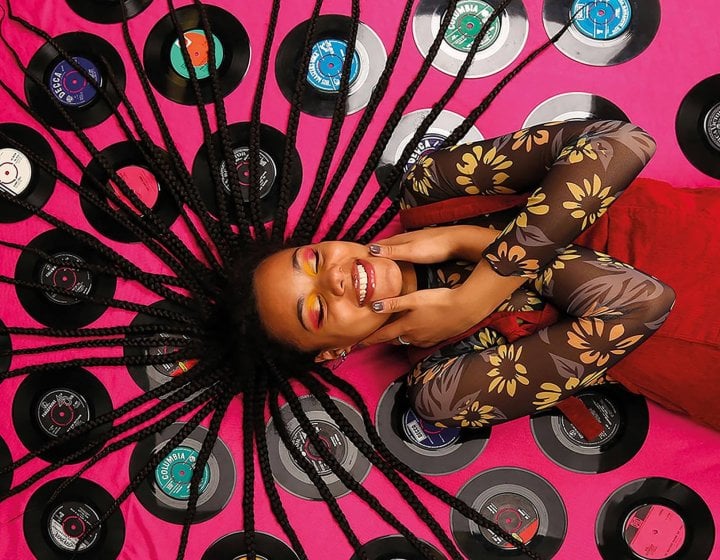
Documentary & Editorial Photography BA(Hons)
On this fast-paced degree, you’ll learn to use the power of photography to communicate with a glob...
Open Days and events
From visiting campus to online application advice, get all the information you need about joining our creative community.
Find an event
